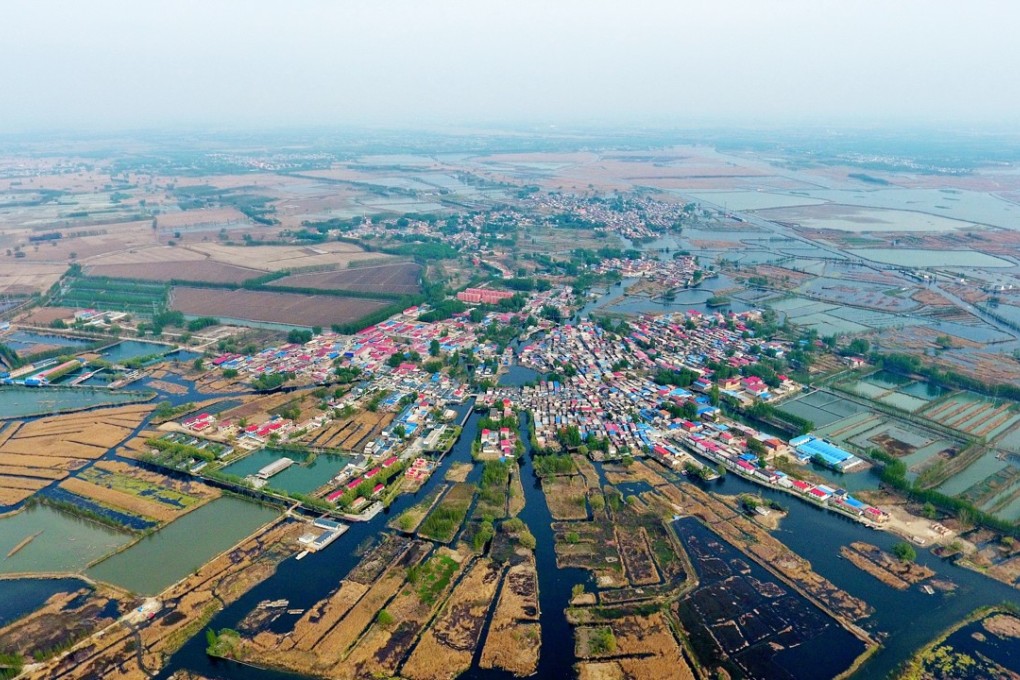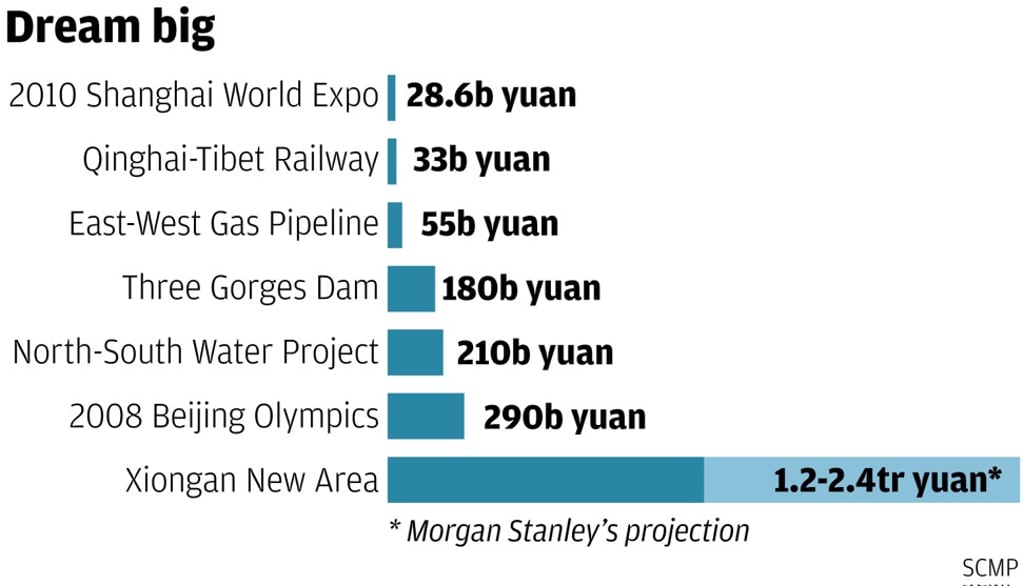Exclusive | Which industries will China set up in Xiongan, the president’s dream city?

Xiongan, the area outside Beijing that was hand-picked by Chinese president Xi Jinping as the dream city for his “thousand-year” plan to transform the capital, will be developed into a high-technology hub and showcase of the country’s latest innovations, said the Communist Party chief of the district.
The district will seek out companies engaged in information technology, biotechnology, new energy and new materials, providing them with various incentives and benefits to invest and establish operations in Xiongan, said Chen Gang, the district party chief in Hebei province.

Xiongan sits at the geographic centre of Xi’s master plan to integrate Beijing with the port city of Tianjin and with the surrounding Hebei province into a single region for development. Known as the Jing-Jin-Ji plan, it’s one of the president’s two main development initiatives, along with his ambition to recreate the new overland and maritime Silk Road, dubbed the Belt & Road Initiative.
Xiongan comprises three existing rural counties measuring a combined 100 square kilometres - Xiong, Rongcheng and Anxin - and will eventually expand 20-fold to cover 2,000 sq km, the same size as Shenzhen.
If Xiongan matches Shenzhen in size, it’s also comparable to the southern Chinese city in prestige. Every Chinese leader had his hand-picked dream city: Deng Xiaoping chose Shenzhen as the site for China’s experiment with market economy, and Jiang Zemin turned Pudong from paddy fields into mainland China’s financial centre, while Hu Jintao tried to turn Binhai in Tianjin into a new growth area during his tenure.